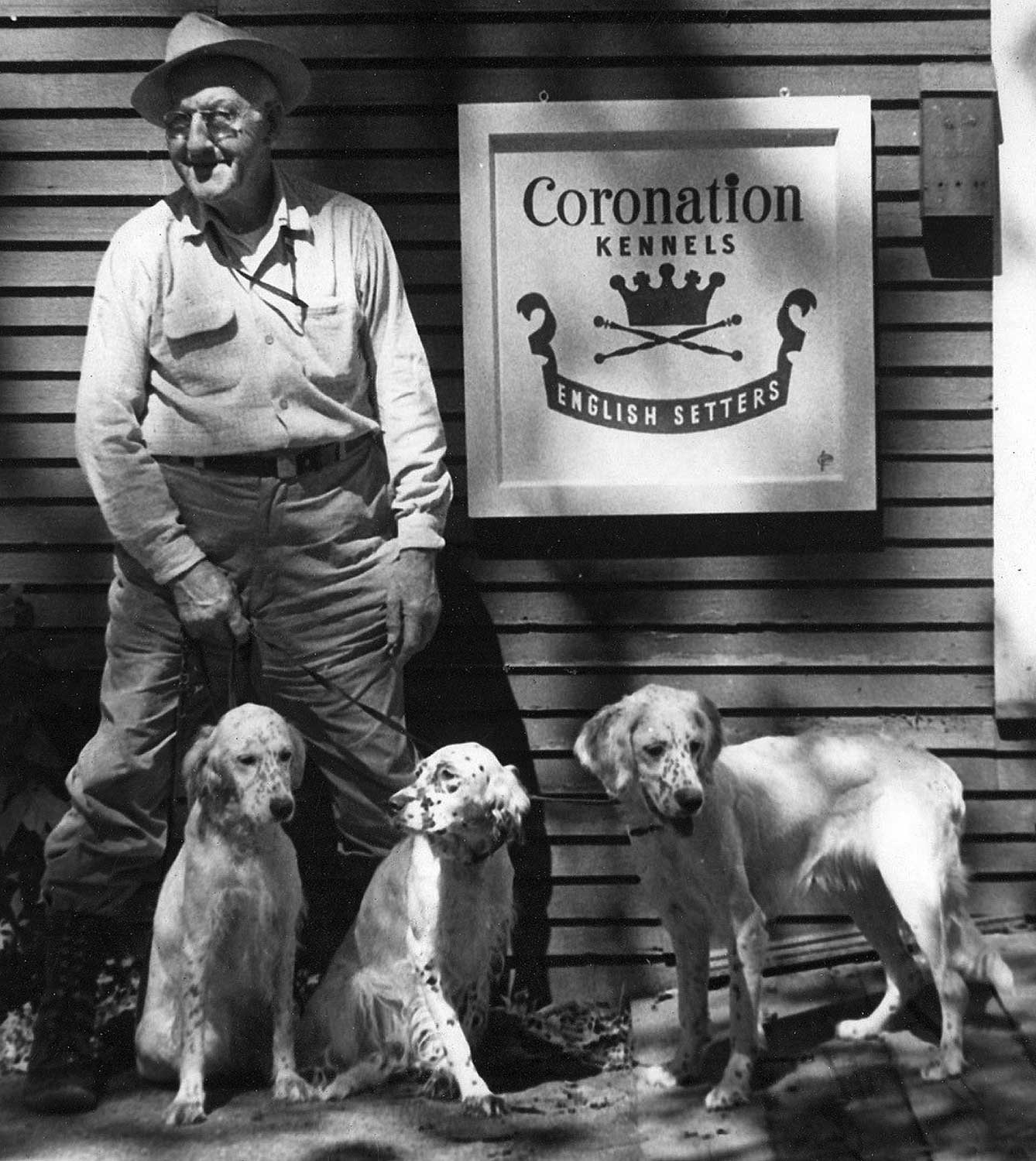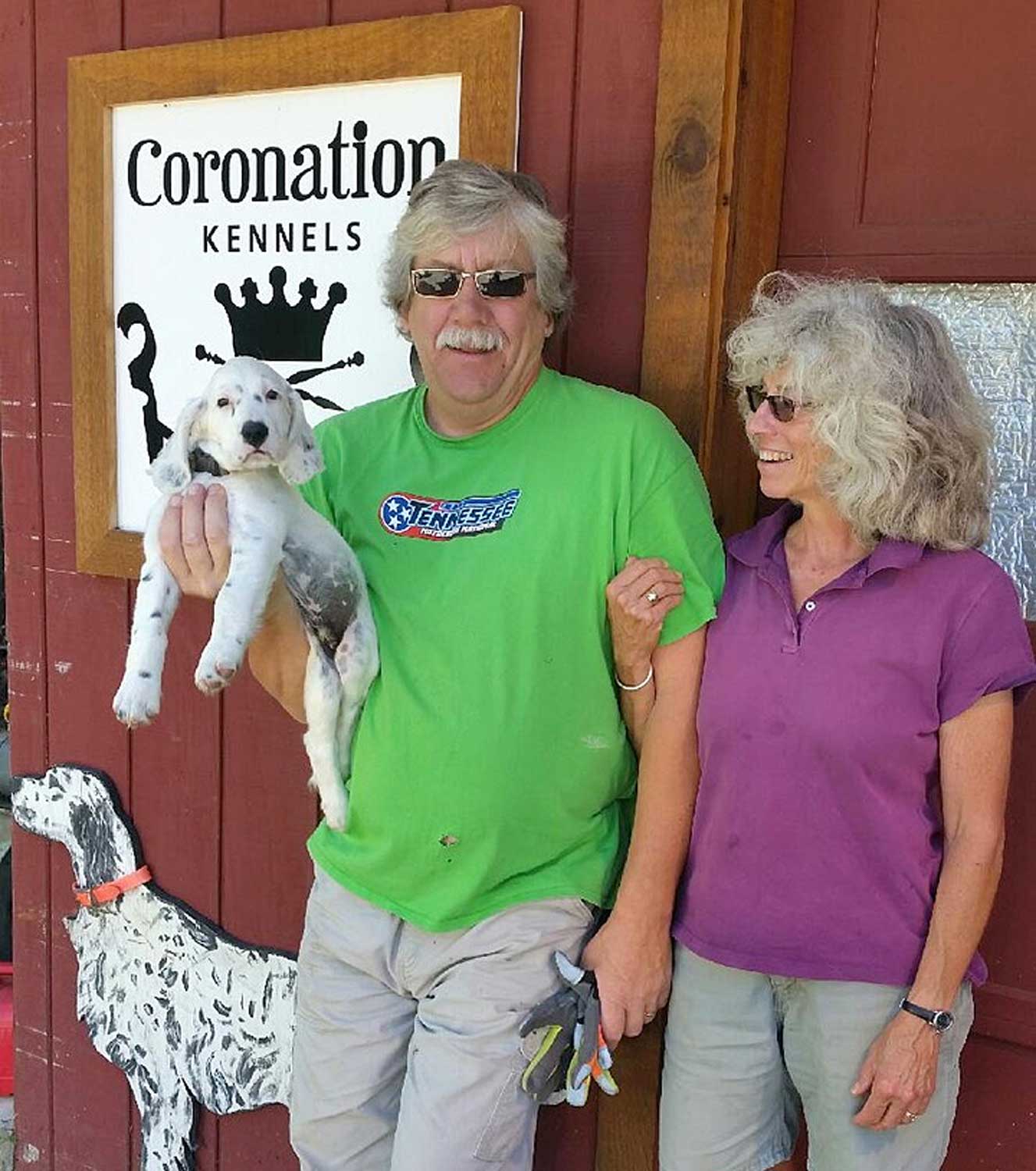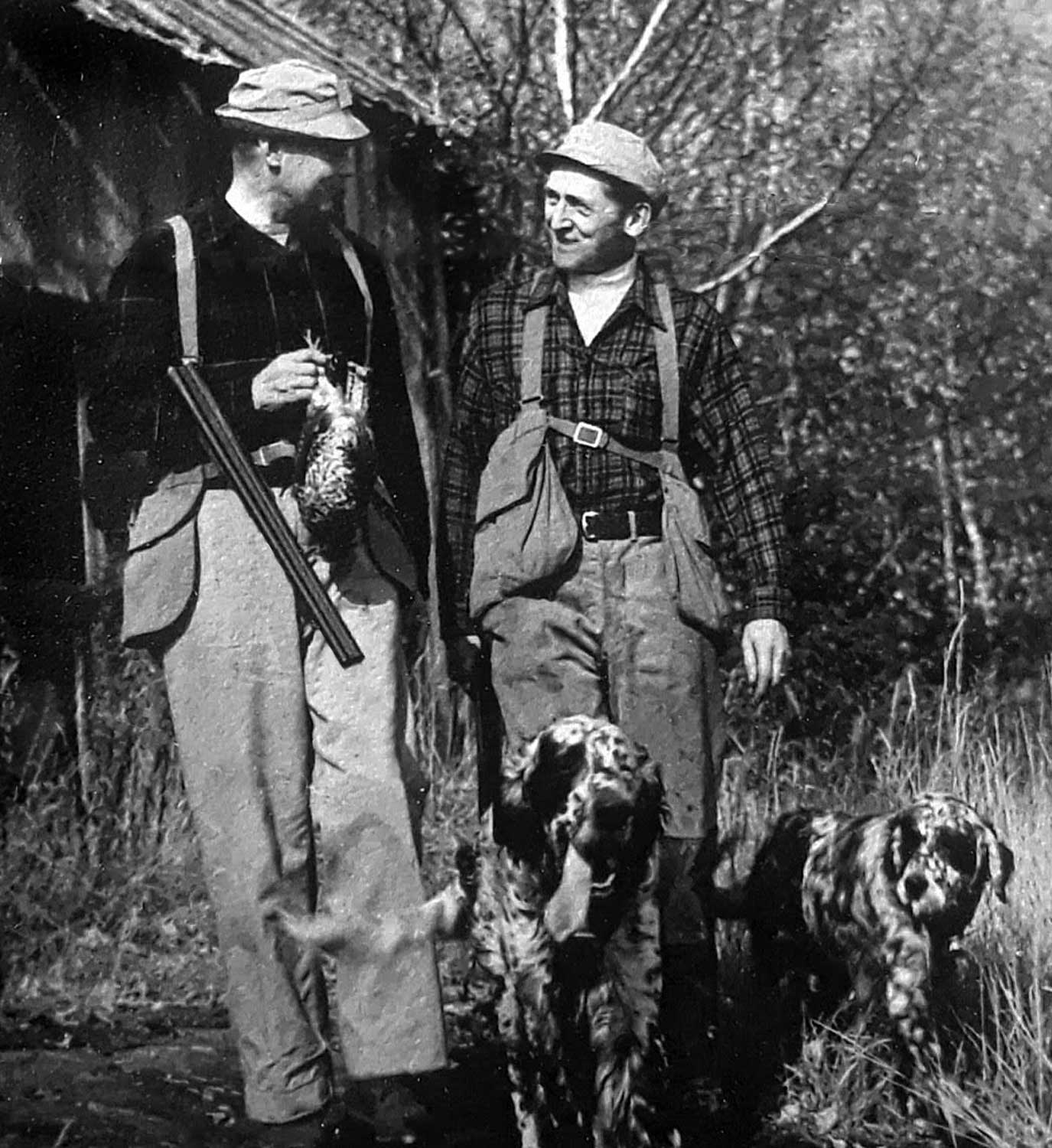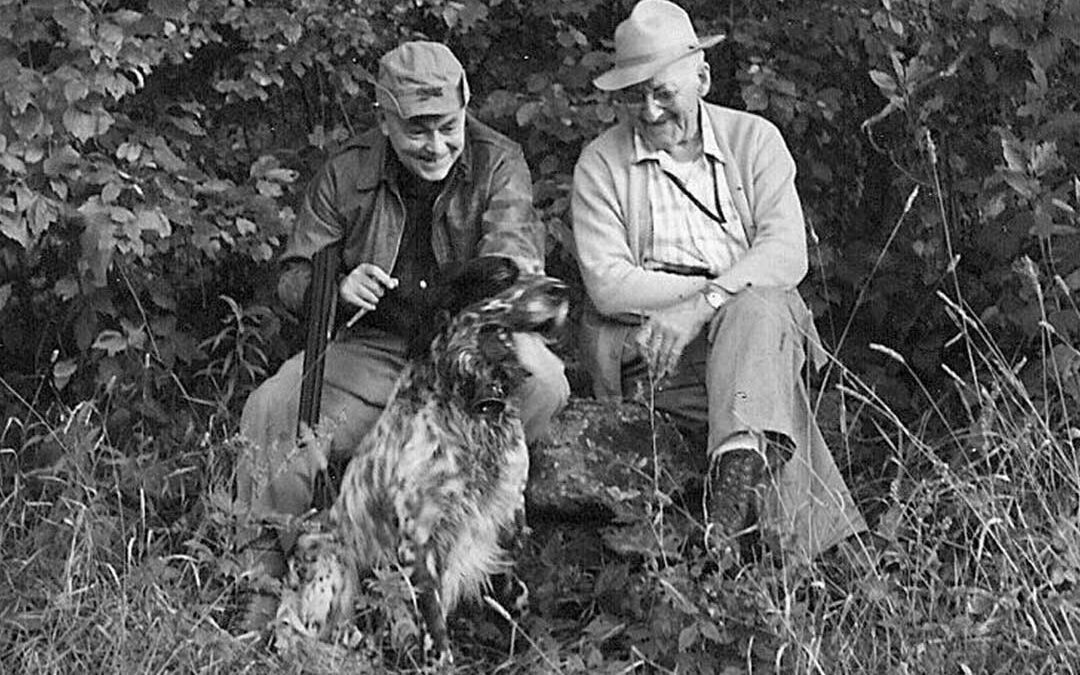Corey Ford’s The Road to Tinkhamtown is more than the literary sum of his life. It’s the pinnacle of sporting literature, rightfully considered the outdoor genre’s best story ever. While we appreciate the dry humor and satire found in nearly 20 years of Ford’s Field & Stream magazine column, “The Lower 40 Shooting, Angling and Inside Straight Club,” bird hunters inevitably are drawn to the two English setters made famous by the writer. Both of them, Cider and Tober, were whelped by Earl Twombly, the founder and owner of Vermont’s Coronation Kennels. Twombly would be proud to know that his grandson and granddaughter-in-law, Legh and Jenn Higgins, have kept his legacy alive. This year, Coronation Kennels will celebrate its centennial anniversary. Normally a 100th birthday would be a cause for celebration. In a way it is, for the Higgins’ recently announced that their business has arrived in Tinkhamtown.

Twombly’s curriculum vitaewas a statement of the times, creative enough to thrive during the original Great Depression. After a day as a letter mail carrier, he taught students to play the violin. He also worked as a druggist in an era far less legally oriented. But Twombly’s true love was hunting dogs, and to be around them meant they needed to generate income. With a goal of providing uplanders and waterfowlers with gun dogs worthy of a stately fee, Twombly founded Coronation Kennels in 1924. His focus was on pointing dogs and retrievers, with English setters and American Labs as his breeds of choice.
“We’ve got boxes and boxes of old correspondence and photos from the early days,” said Legh Higgins. “One typed letter advertises a litter whelped on August 12, 1934. The dam, Phil Speed Ben, was a National Champion with Count Waitestone, May Fly, CH Broom Hill Dan and CH Count Gladstone IV. The sire was out of Ryman’s Grouse Joe whose lineage included Sir Rodger De Coverly, Albert’s MacAllister and CH Albert’s Sir Allister. Grandfather focused on breeding the best genetics, which is a cornerstone that Jenn and I have insisted on during our time.”
Twombly’s letter shows how much dog breed and hunter/trialer tastes and preferences have changed over time. His fees were $25 for a male and $20 for a female. “Taking inflation into account those males would cost $572 today. The females would run $458. While we charge more than that for pups, dog breeding is a challenging business,” Higgins said. “These days, Jenn and I get about a 15 to 1 request for females to males, so with those rates and the limited number of females per litter we’d be out of business pretty quickly,” he laughed.

Legh and Jenn Higgins.
Wild bird contacts, and lots of them, were part of Twombly’s success. “Grandfather developed his lines during the Golden Age of New England ruffed grouse hunting,” Higgins said. “There was no shortage of young growth forests, and grouse were pretty much everywhere. To successfully hunt them, Grandfather wanted very close working dogs, ones that would work within eyesight in the thick covers and had good birdsmarts. He used no bells and watched each dog or brace as they cast at the 25-yard range. The farthest his dogs ran was about 40 yards and, that too, is very different from today.”
While Coronation Kennels dogs had large frames, they had to be athletic. “Conformation was important to Grandfather as it was to my mother, Becky, who also worked at the kennel,” Higgin’s said. “They did not want smaller dogs, the kind that were emerging in the field, and looked for males in the 60- to 65-pound range. Females were typically smaller and in the 45- to 50-pound range. Consistency in their breeding was critical, and Coronation Kennels became known for dogs with good heads, square muzzles, dark eyes and low hung ears. Grandfather’s setters became known as the classic New England grouse dog, so much so that a salesman from Montgomery Ward, the catalog company, wanted to sell the dogs through the catalog. To get them to their new owners they’d have to be shipped by train. The deal never went through, mostly because there was too much care involved in the shipping.”

Corey Ford, Cousin Sid Hayward, Cider and Buckey.
Sportsmen came from far away to buy pups, started dogs and finished dogs, and one of them was Corey Ford. “During the 1940s,’50s and ’60s, Corey lived in a white house on North Balch and worked at Dartmouth College,” Higgins said. “He hunted and fished and wrote about his friends in his ‘Lower 40’ column. Jim Hall, an aspiring doctor, became Doc Hall, and he owned Timber, which was one of Grandfather’s dogs. Jim Perkins, the owner of Uncle Perk’s Hardware Store, became Uncle Perk while Parker Merrill was recast as Judge Parker. Col. Cobb was a Dartmouth student whose last name was Cobby. But how Grandfather connected with Corey was through Cousin Sid, really known as Sid Hayward who was the treasurer of Dartmouth College. Sid had two Coronation setters, Duke and Bucky, and Corey loved them both. When Corey was ready for a dog, Sid brought him to our kennel.”
Over the years, Ford owned two pups from Coronation Kennels. Cider, named because he goes to work in the fall, and his son, Tober, an abbreviation of October, was named after Ford’s favorite month of the year. “My dog is a large English setter, who acquired me when he was about six months old, and who has been making up my mind for him ever since,” Ford wrote. “When we go out on a leash together, he decides whether to run or walk or halt abruptly at the corner lamppost to mail a letter.” Ford wrote directly about Cider in his piece, “A Dog Named Cider.”
After commemorating their kennel’s centennial, Legh and Jenn Higgins will retire and close their business. “We’ve been holding hands since 6th grade, and married for nearly that long,” Jenn said. “Our main reason for taking over the kennel was to honor Legh’s mom and grandfather and the dogs they bred and trained. It became a wonderful business and a lifestyle, one that has been full of litters, training and hunting. We’ve made a lot of really great friends through the dogs, but now it’s time to retire. Running a kennel is a 24/7 business that requires a lot of time and energy. We’ve got a few final litters and, after a break, perhaps we’ll just breed for ourselves. Dogs have always been an important part of life and our relationship as they will be forever.”

